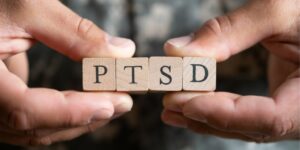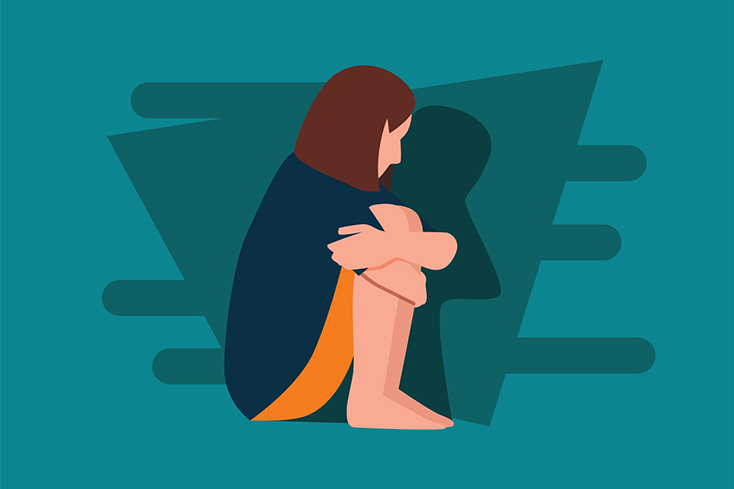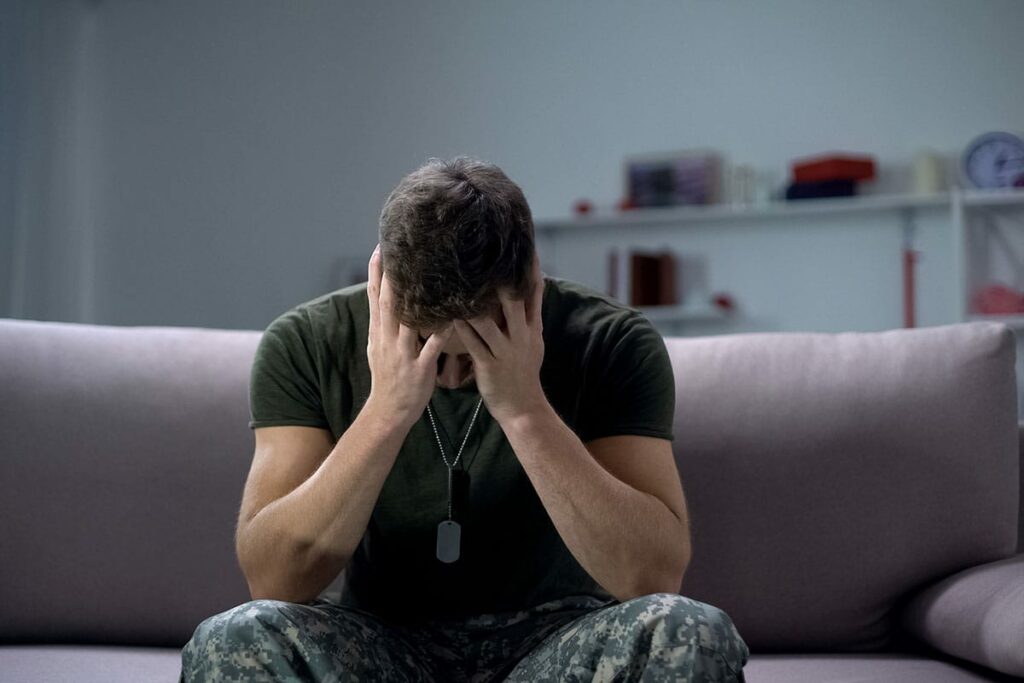Post-traumatic stress disorder (PTSD) is a mental health condition that can be caused by exposure to any event that results in psychological trauma. While most people who experience a traumatic event do not develop PTSD, for some it can be a very real and debilitating condition. In this blog post, we will discuss some common triggers for PTSD and how to avoid them. If you or someone you know is struggling with PTSD, please seek professional help.
Contents
What Is PTSD?
 PTSD is a mental health condition that can be triggered by experiencing or witnessing a traumatic event. Symptoms of PTSD can include flashbacks, nightmares, and severe anxiety. PTSD is one common reaction to trauma.
PTSD is a mental health condition that can be triggered by experiencing or witnessing a traumatic event. Symptoms of PTSD can include flashbacks, nightmares, and severe anxiety. PTSD is one common reaction to trauma.
PTSD is one of the most common psychological reactions to trauma. It is estimated that 70% of adults in the world will experience a traumatic event at some point in their lives. Of those, up to 20% will go on to develop PTSD.
While most people who experience trauma don’t develop PTSD, certain factors can increase your risk:
- Having experienced multiple traumas
- Experiencing physical injuries or being threatened with injury or death during the event
- Witnessing someone else being injured or killed
- Losing a loved one as a result of the trauma
- Feeling helpless or hopeless during the event
- Being exposed to graphic details or media coverage of the event
Some of the signs of PTSD can include:
- Flashbacks
- Nightmares
- Severe anxiety
- Avoidance of people, places, or things that remind you of the trauma
- negative changes in your thoughts and feelings
If you’re experiencing any of these symptoms, it’s important to seek professional help. PTSD is a treatable condition, but it can’t be cured. The sooner you get treatment, the better your chances are for recovery.
What Do ” PTSD Triggers” Mean?
PTSD triggers are a term used to describe anything — a person, place, thing, or situation — that sets off a memory of the traumatic event in people who have been diagnosed with post-traumatic stress disorder (PTSD).
Triggers can be external, like hearing a car backfire and being reminded of gunfire; or they can be internal, like having a nightmare about the event. Either way, these triggers can cause PTSD symptoms like anxiety, depression, flashbacks, and intrusive thoughts to surface.
While it’s impossible to avoid all triggers (especially if you don’t know what they are), there are some things you can do to manage them. Here are 11 PTSD triggers and how to avoid them.
Different Types of PTSD Triggers

Many different things can trigger PTSD symptoms. Some triggers are more common than others. Here are 11 of the most common triggers for PTSD and how to avoid them:
Seeing the News
For some people with PTSD, watching the news can trigger symptoms. This is because the news often contains images or stories of violence and trauma. If you find that watching the news causes your PTSD symptoms to worsen, try avoiding it altogether or limit your exposure to it. You can also try finding a positive news source that focuses on stories of hope and resilience. This can help balance out the negative news and give you a more realistic view of the world.
Being in Crowds
Being in large crowds can be overwhelming for anyone, but it can be especially difficult for people with PTSD. If you have trouble being around large groups of people, try to avoid crowded places as much as possible. If you need to go to a place that’s likely to be crowded, like a concert or a festival, see if there’s an area where you can take breaks from the crowd. And if you start to feel overwhelmed, don’t be afraid to leave the event altogether.
Having Arguments
For some people with PTSD, arguing with loved ones can be a trigger. This is because arguments can remind them of the trauma they experienced. If you find yourself getting triggered by arguments, try to avoid them altogether. If that’s not possible, try to stay calm and constructive during disagreements. And if you start to feel like the argument is becoming too much, take a break or end it entirely.
Being in Small Spaces
For some people with PTSD, being in small spaces can be a trigger. This is because small spaces can remind them of being trapped or helpless. If you have trouble being in small spaces, try to avoid them as much as possible. If you need to go into a small space, like an elevator or a cramped office, see if there’s a way to make yourself more comfortable. And if you start to feel claustrophobic, don’t be afraid to leave the space entirely.
Going to New Places
For some people with PTSD, going to new places can be a trigger. This is because new places can remind them of the trauma they experienced. If you find yourself getting triggered by new places, try to avoid them altogether. If that’s not possible, try to visit familiar places as much as possible. And if you start to feel overwhelmed in a new place, don’t be afraid to leave and go somewhere more familiar.
Being Startled
Being startled can be a trigger for anyone, but it can be especially difficult for people with PTSD. If you have trouble being startled, try to avoid situations where you might be surprised. For example, if you’re afraid of loud noises, don’t go to places where there’s likely to be a lot of noise, like a concert or a sporting event. And if you’re afraid of being in the dark, don’t go into dark places, like a movie theater or a cave.
Seeing Blood
For some people with PTSD, seeing blood can be a trigger. This is because blood can remind them of the trauma they experienced. If you find yourself getting triggered by seeing blood, try to avoid situations where there’s likely to be blood. For example, if you’re triggered by the sight of blood, don’t watch horror movies or news stories about violence. And if you’re triggered by the smell of blood, don’t go to places where there’s likely to be a lot of blood, like a hospital or a slaughterhouse.
Smelling Certain smells
Smelling certain smells can be a trigger for people with PTSD. This is because the smell can remind them of the event that they experienced. If you know what smells might trigger your PTSD, it is important to avoid them. These can also mean avoiding certain places or things that have the potential to trigger a PTSD episode. If you can’t avoid the trigger, try to distract yourself from it by focusing on something else.
Touching Certain textures
Sometimes the sense of touch can be a trigger for individuals with PTSD. This may include the feeling of certain fabrics, such as wool, or experiencing sudden touch, like a hug from behind. Sometimes these triggers can be avoided by wearing different fabrics or asking people to not touch you in certain ways.
Sometimes there maybe be triggers that are out of your control. If you are triggered, try to remove yourself from the situation if possible and take some deep breaths. It’s important to remember that you are not alone in this battle. Many people understand what you’re going through and can offer support.
Lack of Control
Lack of control is one of the most common triggers for people with PTSD. When someone feels like they can’t control what’s happening around them, it can be incredibly overwhelming and cause a lot of anxiety. Sometimes losing control makes one feel as if their life is in danger, which can lead to a feeling of helplessness.
This lack of control can manifest itself in many different ways. For example, someone with PTSD may feel like they can’t control their environment, their emotions, or even their own body. They may feel like they’re constantly on guard and that they have to be ready for anything. This can lead to a lot of stress and anxiety.
How Do PTSD Triggers Impact Someone?
 PTSD is a serious mental health condition that can be triggered by several different things. For some people, it may be a single event, such as a car accident or natural disaster. For others, it may be chronic exposure to traumatic events, such as living in a war zone or being the victim of abuse.
PTSD is a serious mental health condition that can be triggered by several different things. For some people, it may be a single event, such as a car accident or natural disaster. For others, it may be chronic exposure to traumatic events, such as living in a war zone or being the victim of abuse.
PTSD triggers can cause a person to feel anxious, scared, and out of control. They may also cause physical symptoms such as a racing heart and trouble breathing. In severe cases, PTSD triggers can lead to flashbacks or dissociative episodes, which can be extremely distressing and even dangerous. PTSD Triggers can also interfere with a person’s ability to function normally in their everyday life.
Sometimes there are warning signs before a PTSD trigger is activated. For example, someone may start to feel anxious or have intrusive thoughts about a traumatic event before they have a full-blown flashback. Other times, triggers can be completely unexpected.
How To Avoid PTSD Triggers?
Avoiding PTSD triggers is not always possible, but there are some things you can do to make it easier.
There are three main types of avoidance: emotional, physical, and behavioral.
Emotional avoidance means avoiding thoughts, feelings, or situations that remind you of the trauma. This might include avoiding certain people, places, things, or even conversations about what happened.
Physical avoidance means staying away from anything that could trigger a reminder of the trauma. This could mean avoiding watching television programs or movies that show violence or reading news stories about traumatic events. It might also mean steering clear of places where the trauma occurred.
Behavioral avoidance means changing your behavior to avoid anything that might trigger a memory of the trauma. This might include not driving on the same road where a car accident happened or avoiding crowds if you experienced a traumatic event in a public place.
While avoidance can be helpful in the short term, it’s not a long-term solution. eventually, you will need to face your triggers. But, by using avoidance strategies, you can give yourself time to heal and build up your coping skills so that when you do face your triggers, you’re better prepared to deal with them.
Tips To Keep In Mind While Dealing With PTSD Triggers

Dealing with triggers can be a difficult and daunting task, but there are some things that you can keep in mind that may help. Here are 11 tips to keep in mind while dealing with triggers:
-Try to avoid places or situations that you know will trigger your PTSD. This may not always be possible, but it is important to try to avoid these triggers if at all possible.
-If you know that a certain situation is going to trigger your PTSD, try to prepare yourself mentally and emotionally for it. This may mean talking to a therapist or counselor beforehand, or simply getting yourself into the right frame of mind before facing the trigger.
–Don’t hesitate to ask for help from friends or family members if you need it. Dealing with triggers can be difficult, and you shouldn’t have to do it alone.
-If you find yourself in a triggering situation, try to focus on your breathing and stay in the present moment. This can be difficult, but it is important to try to stay calm during a trigger.
-Try to avoid using alcohol or drugs as a way of coping with triggers. This will only make the situation worse and can lead to further problems down the road.
-Talk to someone who understands what you’re going through. This can be a therapist, counselor, or even just a friend or supportive family member. Talking about your experiences can help you feel better and may help you deal with triggers more positively.
-Keep a journal of your experiences with triggers. This can be a helpful way to track your progress and see how you’re dealing with triggers over time.
– Seek professional help if you feel like you’re not able to cope with triggers on your own. This is an important step to take if you feel like you’re struggling to deal with triggers.
Conclusion
PTSD is a serious mental health condition that can be triggered by a variety of different experiences. If you or someone you know is struggling with PTSD, it’s important to seek professional help. There are also things that you can do to avoid triggering your PTSD symptoms. PTSD triggers are different for everyone, so it’s important to be aware of what your triggers are and how to avoid them.
If you’re struggling with PTSD, don’t hesitate to reach out for help. There are many resources available to you. You don’t have to suffer from this condition alone. With the right help, you can overcome your PTSD and live a happy, healthy life. Thanks for reading.
Hope this article was of help to you! If you are suffering from PTSD, you may seek help from Therapy Mantra. We have a team of highly trained and experienced therapists who can provide you with the tools and skills necessary for overcoming PTSD. Contact us today to schedule an online therapy or download our free Android or iOS app for more information.


